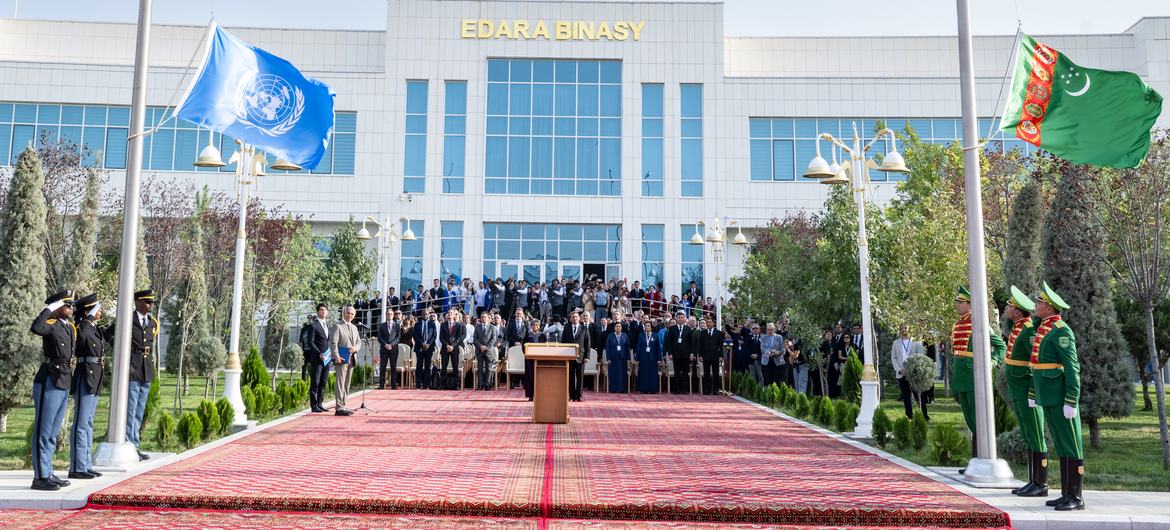OPINION — In his recent Cipher Brief essay, CIA’s Latest Existential Challenge, former CIA senior officer Mark Kelton argues that the Central Intelligence Agency faces an “existential challenge” – a crisis of public trust in a hyper-partisan America. He warns that CIA officers, both serving and retired, risk undermining the Agency’s hard-won credibility by appearing to wade into partisan political battles. Kelton is absolutely correct to sound this alarm. The CIA’s strength has always rested on its reputation for apolitical professionalism, and once that is lost, it is extraordinarily hard to regain. But Kelton’s argument stops short of the larger dilemma we now face. There are two existential threats at play – and they are, perhaps for the first time in generations, in tension.
Opinions expressed are those of the author and do not represent the views or opinions of The Cipher Brief
One threat is to the CIA itself, as Kelton describes. And I don’t think Kelton means that in a parochial way – I believe he means that in ordinary times, the CIA is a critical and necessary part of the larger national security structure that keeps us safe.
The other threat though, is to the very thing that the CIA was created to defend – a constitutional democracy based on rule-of-law. And in this extraordinary moment, that latter threat must take precedence.
Kelton rightly emphasizes that the CIA lives or dies by public trust. Its work is conducted in secrecy, and Americans tolerate that secrecy only because they believe CIA officers serve the Constitution and the nation, not a political party. That trust is eroding. Kelton points to post-2016 leaks, former officers publicly defending the discredited Steele dossier, and the 2020 “Hunter Biden laptop” letter as flashpoints that fed the perception that the CIA had “put its thumb on the political scale.”
Kelton’s prescriptions—crack down on leaks, increase public outreach, and remind former officers that they remain, in the public mind, representatives of the Agency—are sound. He would also be correct to warn that officers trained in the clandestine “dark arts” of espionage and influence must never import those skills into domestic politics. Around the world, we have seen what happens when intelligence services are politicized; they become tools of repression.
Kelton frames the crisis as one of protecting the CIA’s institutional integrity. But what happens to that integrity if American democracy itself fails?
In any normal political era, Kelton’s argument would be unassailable. It is essential in such times that the CIA follows, quietly, the directions of elected leaders – Intelligence Officers do not get a “veto.” But this is not a normal political era.
In the past weeks, we have seen an increasing shift in how the President, and his senior advisors, see parts of the U.S. government – as instruments to be used domestically, to (using his phrase) “go after” people, and those people are also his political and personal enemies.
Subscriber+Members have exclusive access to the Open Source Collection Daily Brief, keeping you up to date on global events impacting national security. It pays to be a Subscriber+Member.
This change has taken many forms and is part of a larger trend towards destruction of the institutions and norms which have prevented that rise of an authoritarian president since the founding. In the context of intelligence, we have seen the mass firing of critical parts of the national security community, a fixation on eliminating “wokeness,” and the explicit politicization of intelligence products as demonstrated by the head of the Intelligence Community calling for criminal prosecution of a predecessor, and a former President, accused of vague “crimes.” This conduct is what we have seen in authoritarian countries like Germany (pre- and post-Cold War), Hungary, Serbia, Russia and China. Not here.
The CIA’s mandate—to provide unvarnished intelligence to elected leaders—depends entirely on a functioning constitutional order. In an authoritarian America, the CIA would not remain a trusted, apolitical service. It would either be reshaped into a domestic instrument of control, as intelligence services have been in other nations, or it would cease to exist in any recognizable form.
Simply put: if our nation’s commitment to democratic, constitutional, rule-of-law government fails, the CIA fails with it. The existential threat to democracy is also, ultimately, an existential threat to the Agency. In an autocratic America there will still be a CIA, but it will no longer stand apart from its adversaries – KGB, SVR, FSB, STASI, SAVAK and others – but instead, will become one of them.
The organization I now lead, The Steady State, is composed of more than 300 former senior national security officials, including many CIA officers. Like Kelton, we revere the Agency’s apolitical ethos. Most of us spent our careers avoiding even the perception of political involvement. And yet many Steady State members—signed the 2020 “Hunter Biden laptop” letter. Critics have called it partisan. Some of those who signed it tell me that the motivation was not political; it was to warn the public of what, based on their decades of experience, appeared to bear the hallmarks of a foreign information operation. This is the dilemma Kelton does not fully address: When does staying silent become complicity; and when does standing apart from politics become a political act itself?
Kelton argues for prioritizing the CIA’s institutional credibility. I share his concern. But when forced to choose between two existential threats—one to the Agency, the other to the Republic—our greater loyalty must be to the survival of our national core itself.
What national security news are you missing today? Get full access to your own national security daily brief by upgrading to Subscriber+Member status.
This does not mean that former officers should turn into pundits or inject themselves into every political controversy. Quite the opposite. Kelton’s call for humility and restraint is critical. Former officers must speak carefully, with an awareness of how easily their words can be misinterpreted as representing privileged access or political intent.
But this is not an ordinary moment. The indicators of authoritarianism we once tracked overseas—attacks on an independent judiciary, politicization of law enforcement, efforts to delegitimize elections—are now visible here at home. In such a moment, silence is not neutrality. It is abdication.
Kelton is right: the CIA must remain apolitical, far from partisan politics. Former officers must avoid actions that undermine public trust in the Agency. But he is only half right.
The CIA’s very existence depends on a functioning constitutional system. Without that, there will be no apolitical CIA to defend. What we are seeing now is not just another partisan spat but a test of the fundamentals of American government.
The challenge for those of us who once served is to walk a fine line: to protect the Agency’s credibility while also defending the democratic system on which that credibility depends.
The CIA’s ultimate mission is to protect the security of a free, democratic United States. When that democracy faces an existential threat, our duty—as former officers and as citizens—is to stand for those values, even at the risk of being misunderstood.
The Cipher Brief is committed to publishing a range of perspectives on national security issues submitted by deeply experienced national security professionals.
Opinions expressed are those of the author and do not represent the views or opinions of The Cipher Brief.
Have a perspective to share based on your experience in the national security field? Send it to Editor@thecipherbrief.com for publication consideration.
Read more expert-driven national security insights, perspective and analysis in The Cipher Brief.
<




